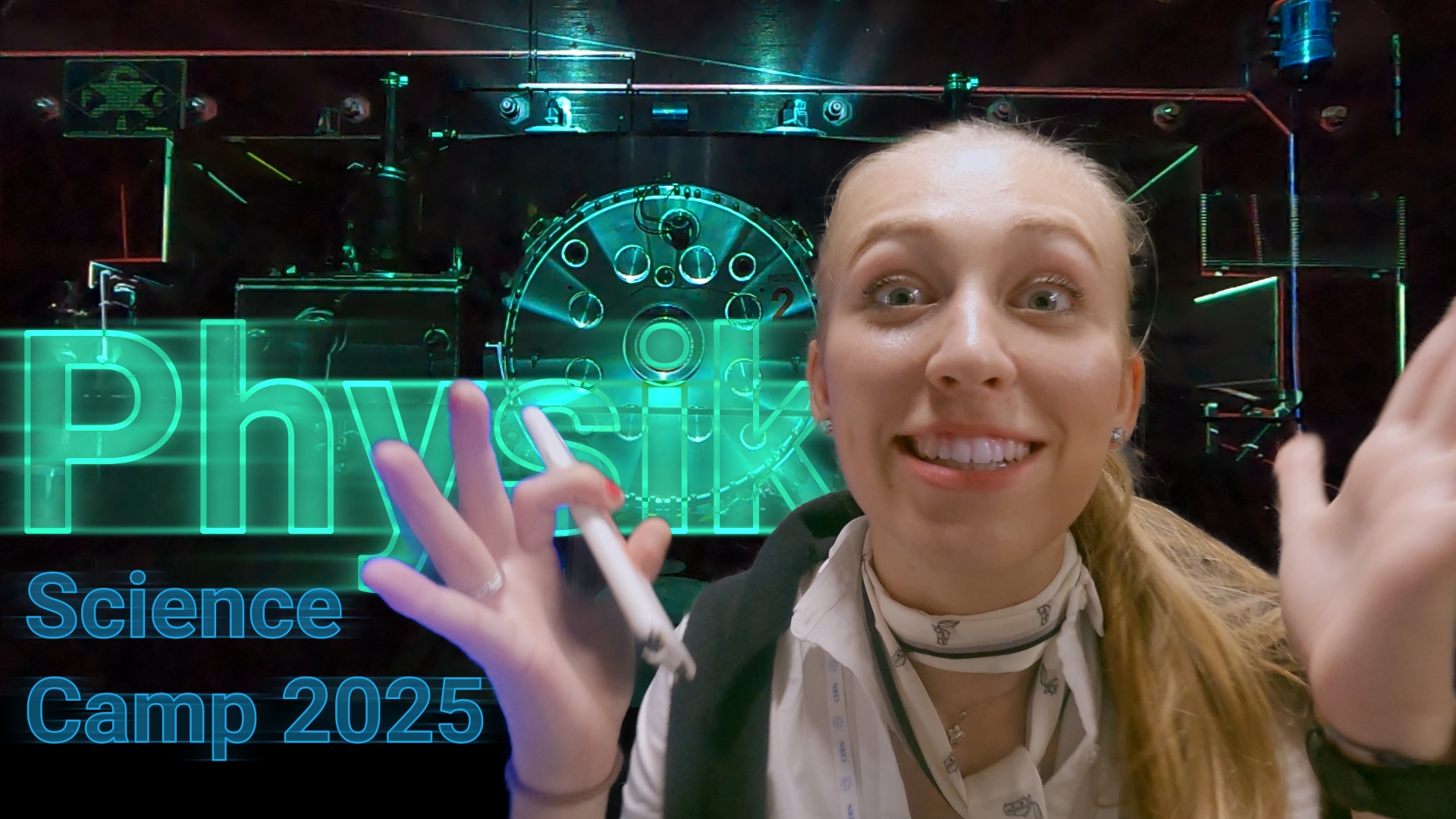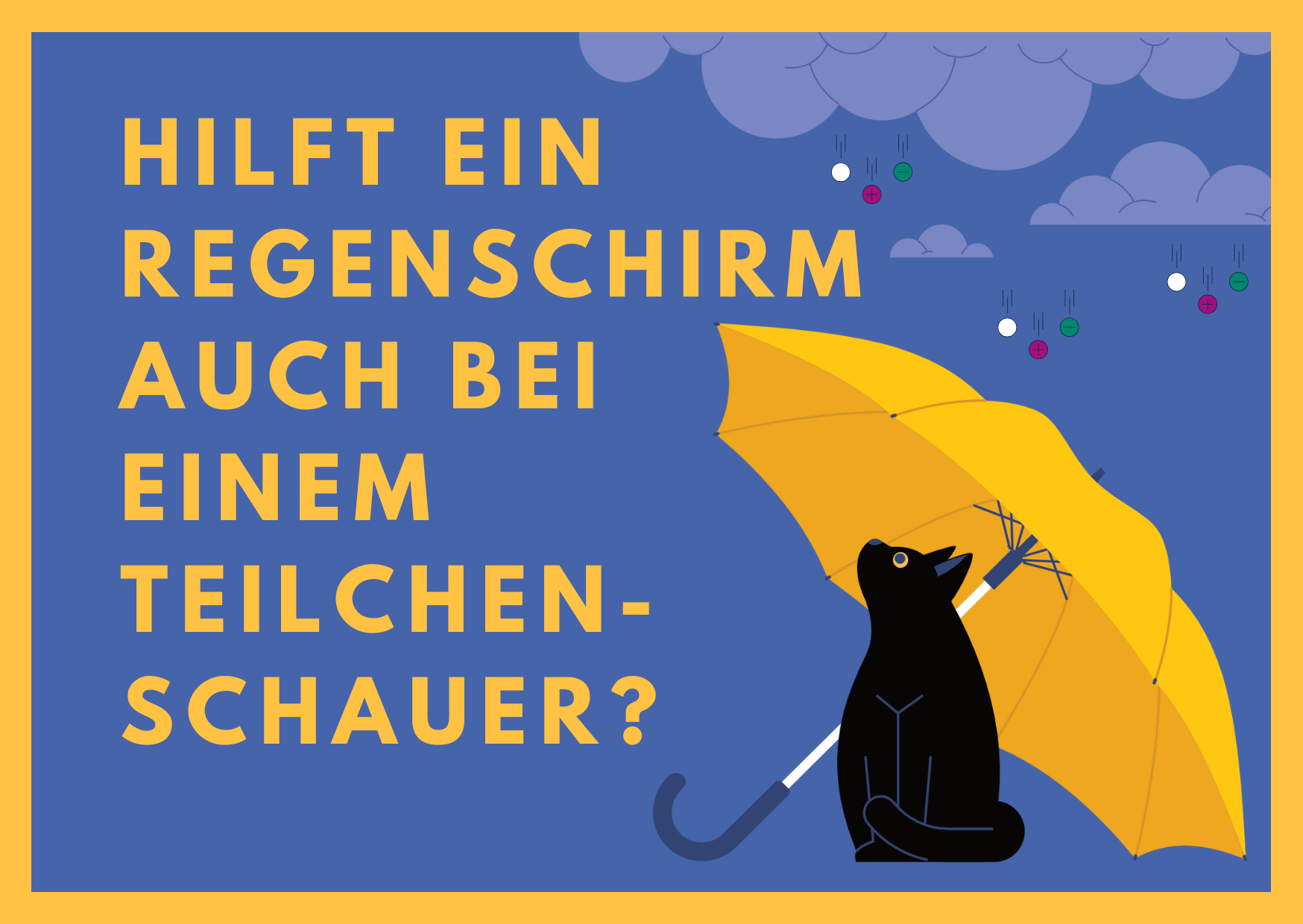Why do we build particle accelerators and what can we observe with them? Why do we need knowledge from particle physics to understand the origin of the universe and the processes within it? And what possible applications do the technologies based on this have in everyday life?
If you find modern physics topics exciting and would like to learn more about them, then ourParticle and Astrophysics Science Campat KIT is just right for you. Here you will learn to understand interrelationships, observe the effects of particle physics yourself in experiments and investigate and evaluate them in a team.
![]() Contact person at ZML
Contact person at ZML
Michael Gauss
Phone: +49 721 608-48206
E-mail: michael.gauss3∂kit.edu
In addition to beginner-friendly lectures by physics professors, there will also be insights into current research. A tour of the KATRIN experiment, in which the neutrino mass is being investigated experimentally for the first time, and the KARA circular accelerator at KIT's North Campus are planned.
Working in teams, you will be able to take and analyze data from a particle detector. You can choose between different experiments, e.g. For example, to detect ambient radioactivity or cosmic radiation with sensitive media (e.g. water, plastic, gas, semiconductors). It is even possible to search for Higgs events in the data from the LHC particle accelerator at CERN. The individual subject groups present their results to each other at the end of the week.
KIT physics students and young scientists will be on hand to offer advice and support. This gives you the opportunity to learn more about everyday life as a physicist, studying physics and studying at KIT in general.
Overview
Science Camp Particle and Astroparticle Physics
16.08. to 21.08.2026
for young people from the completed 9th grade (prospective 10th grade and higher)
The camp begins on Sunday afternoon with the arrival and arrival and ends on Friday afternoon after your final presentations. We will stay overnight with the whole group in the youth hostel, even if some of you live in Karlsruhe and do not need accommodation.
All participants must be 16 years old at the time of the camp and have a valid ID document, preferably a passport.
Registration information
Registration takes place online via the Student Academy website (link follows).
You will receive notification of acceptance or rejection directly from KIT. Please only transfer the fee to the Schülerakademie afterwards.
Cancellation is possible free of charge up to three weeks before the start of the camp. In this case, please contact Michael Gauß (Gauss ∂does-not-exist.kit edu).By registering, you confirm that you want to be present for the entire period.
The Science Camp Particle and Astroparticle Physics is offered in cooperation with the Institute for Experimental Particle Physics, KIT Center for Elementary Particle and Astroparticle Physics (KACETA) and the Center for Media Learning of the KIT. It is supported by the Netzwerk Teilchenwelt der Schülerakademie Karlsruhe e.V. with the kind support of the Karl Schlecht Foundation and the Schroff Foundation.
If you have any questions, please contact Carolin(carolin.quast9∂kit.edu) or Michael(Gauss∂kit.edu).







